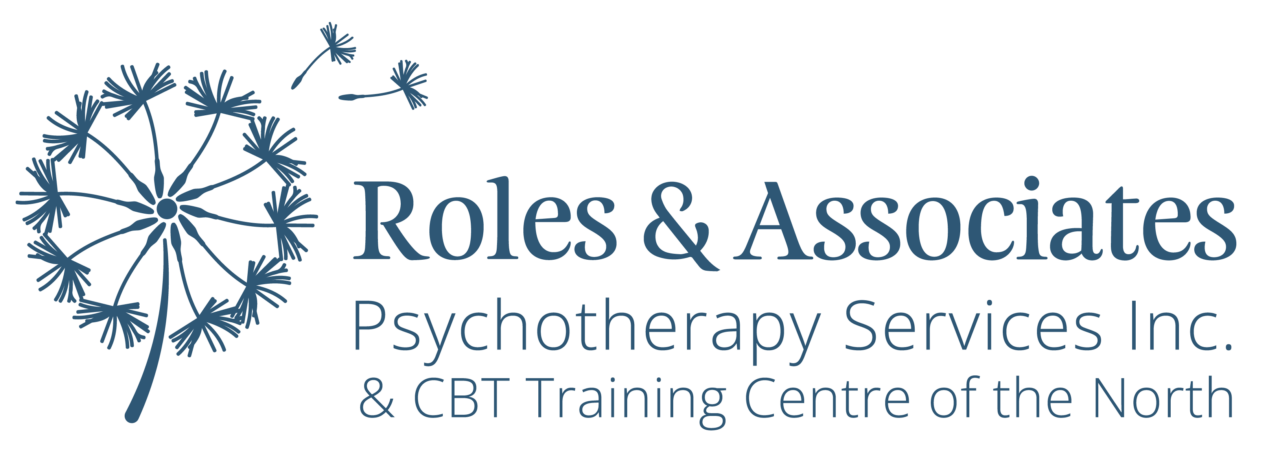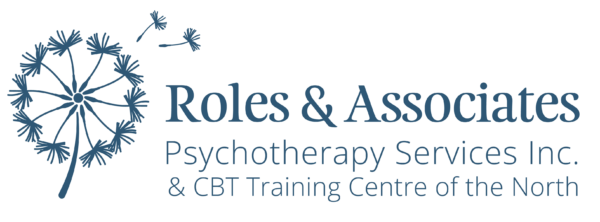Transformative Psychotherapy Solutions for Your Organization
Partner with Us for Comprehensive Specialized Psychotherapy Services.
At Roles & Associates Psychotherapy, we understand that organizations often face challenges in providing specialized psychotherapy services to their clients. Whether it’s due to a lack of skilled staff or financial constraints, ensuring your clients receive the care they need can be challenging and we are here to help you provide the necessary services.

Why Choose Specialized Psychotherapy Services (SPS)?
Expert Care for Complex Conditions:
Our team specializes in treating complex PTSD, OCD, pain, eating disorders, tinnitus, balance disorders, addictions, trauma, and more. We bring the expertise and experience required to handle these intricate issues, ensuring your clients receive the highest standard of care.
Cost-Effective Solutions for Organizations:
By partnering with us, your organization can offer specialized psychotherapy services without the overhead costs of full-time staff. We provide these services at a discounted rate for those with contracts, making it an economically viable option for your organization.
Flexibility and Accessibility for Clients:
Clients covered by other funding sources, such as NIHB, can utilize those funds for our services, allowing your organization to allocate resources more effectively.
Benefits for Your Clients
- Access to a wide range of specialized psychotherapy services.
-
Continuity of care with experienced professionals.
-
Enhanced mental and emotional well-being through expert intervention.
How It Works
1. Initiate a Contract: Contact us to set up an agreement for monthly invoicing or lump sum payment
2. Referral Process: Refer clients to our intake team to match them with the best clinician for their needs.
3. Customized Care Plans: We create tailored treatment plans to address each client’s unique needs.
4. Continuous Support: Our team works closely with you to ensure seamless communication and integration of services.

Our Approaches to Therapy
Roles & Associates Psychotherapy Services Inc. is a team of registered multidisciplinary clinicians who are all certified cognitive behavioural therapists who are also proficient in in a wide range of psychotherapeutic modalities and interventions.
We collaborate with companies, agencies, and organizations to customize Specialized Psychotherapy Services that align with the complex and unique psychotherapy needs of your clients. This allows your clinicians to focus on people living with mild to moderate mental health and substance use healt
We use a client-specific protocol combining various methods of therapy to treat a wide variety of issues and disorders.
Acceptance and commitment therapy (ACT) is an action-focused therapy approach where clients learn to accept their emotions and feelings rather than deny or avoid them. They also learn to accept their difficulties and needs as well as work on behavioural changes.
Brainspotting therapy™ (BSP) is a therapeutic process that uses specific points in the client’s visual field to access unprocessed trauma in the subcortical brain. BSP uses relevant eye positions, somatic awareness, focused mindfulness, and the therapist’s attunement to process and release the stored traumas which underlie a wide range of emotional and physical problems. It is a brain-body-based treatment that integrates well with other types of therapies. Often brainspotting is used in conjunction with bilateral sound - music or nature sounds that move back and forth between right and left ears, which balances activation of the right and left brain hemispheres and activates the parasympathetic, or calming, part of the nervous system. Brainspotting therapy was developed in 2003 by Dr. David Grand, an EMDR therapist and relational analyst.
Cognitive behavioural therapy (CBT) is a goal-oriented type of therapy that teaches the client how to first recognize and then change unhealthy ways of thinking and behaving. With the use of in-session practice and homework of skills to work on between sessions, this treatment is tailored to fit the client's goals and is a highly evidence-based collaborative psychotherapy.
Compassion focused therapy (CFT) is a type of psychotherapy that encourages individuals to be compassionate toward others as well as themselves. This type of therapy is primarily used for clients that struggle with self-criticism and self-contempt. CFT often includes exercises to practice mindfulness and appreciation. Sessions focus on examining the ways we talk to ourselves, where we might have first developed the particular tone and word choices used, and how we can make changes to how we speak to ourselves to increase self-compassion and appreciation.
Cognitive processing therapy (CPT) is a type of cognitive behavioural therapy (CBT) in which clients learn how to examine and change negative thoughts as well as beliefs related to their trauma. They identify thoughts and beliefs that stemmed from their traumatic event and work to modify them by creating a narrative that better fits their identity and goals in life.
Dialectical behavioural therapy (DBT) is a type of cognitive therapy that is very structured, where clients are taught skills in the four domains of mindfulness, interpersonal effectiveness, emotion regulation, and distress tolerance. This works to support clients in changing their behaviours, thoughts, and process their feelings in healthier ways. This type of therapy is effective for individuals who want to improve their ability in regulating their emotions and was developed for people with borderline personality disorder and suicidal impulses. DBT requires consistent attendance and adherence to homework that is developed by both the client and therapist working together as a team.
Exposure and response prevention (ERP) is a cognitive and behavioural type of therapy used to treat OCD, where the therapist first teaches the client ways to cope with their anxiety, such as methods of relaxation, how to address and how to stop intrusive and obsessive thoughts. Next, the therapist encourages the client to work on being exposed (safely) to their triggers, in order to learn how to cope with them while in the moment without resorting to compulsions. In time, clients report their symptoms subsiding as they gain control over their thoughts.
Eye movement desensitization and reprocessing (EMDR) is another structured approach to treating PTSD, as well as trauma. Clients will briefly access a traumatic memory during sessions while being guided and supported by the therapist who will support them to keep them grounded. This type of therapy is ideal for clients who prefer not to verbalize their traumatic experiences, which is necessary for PE, but who still want to work on trauma memories and related symptoms.
Inner child work is about tapping into a past version of oneself. This can be done on your own or as guided by a therapist. This type of work is often used as a tool for healing trauma, as it understands many of our disruptive distressing symptoms or behaviours stem from past experiences or unmet needs from before; often in childhood or adolescence. By tapping into how you were feeling during or after a trauma has occurred, you can learn how to revisit that time and version of yourself to bring comfort, and acknowledge what has happened.
This method helps clients build emotional resiliency, reduce avoidance to particular memories through exposure and helps people learn to self soothe. This can be done through an imaginal exposure, where the therapist leads the client back through memories in a safe setting and encourages them to hold themselves or say what they needed to hear. This can also be done by tapping into who the client was prior to adverse experiences or trauma to assist them in finding activities that bring them joy and help them connect to who they were before the incident. When a client learns to listen to the needs that their inner child has, they can begin to meet those needs and continue to expand this resiliency into other areas of their lives, while accepting all parts of themselves.
It is the nature of the mind to be made up of subpersonalities or parts. Subpersonalities are aspects of our personality that interact internally, similar to the ways in which people interact. These sub-personalities can consist of wounded parts and painful emotions such as anger and shame. Underlying the parts is a person’s core or true Self. The Self can and should lead the individual's internal system.
Internal Family Systems (IFS) therapy helps individuals achieve balance and harmony within their internal system and subpersonalities/parts.
Using IFS, the clinician will support individuals in developing their Self so it can be an effective leader in their internal system. When the Self is in the lead, the parts will provide input to the Self and help to elevate “wounds” so that individuals can find their natural balance. IFS is suitable for individuals, couples, and families, and it can effectively treat a variety of conditions such as depression, anxiety, panic, phobias, trauma, substance use, physical health conditions, and general well-being.
Meaning therapy belongs to the humanistic-existential tradition, which emphasizes the importance of addressing existential anxieties and the human needs for meaning and authenticity. According to Frankl (1986) who developed logotherapy aka meaning therapy, three factors characterize human existence: spirituality, freedom, and responsibility. In meaning therapy we focus on the human responsibility to live meaningfully and purposefully in every situation on a daily basis in order to become what they are meant to be.
Prolonged exposure (PE) therapy is a type of therapy used to treat post-traumatic stress disorder (PTSD). First, therapists teach clients coping skills that they can use throughout this process to engage in relaxation should they become too overwhelmed when discussing their traumatic experiences. PE introduces the client to concepts of how and why our brains react to trauma the way they do, why these reactions stick around, and how through the use of gradual exposure to one’s memories and in-life exposures, trauma symptoms will subside.
Psychodynamic psychotherapy is the oldest of the modern therapies and focuses on unconscious processes as they are manifested in the client's present behaviour. The goals of psychodynamic therapy are client self-awareness and understanding of the influence of their past on their present behaviour.
Brief psychodynamic psychotherapy enables the client to examine unresolved conflicts and symptoms that arise from past relationships and manifest themselves in their day to day life as current struggles.
Several different approaches to brief psychodynamic psychotherapy have evolved from psychoanalytic theory and have been used to treat many different mental health presentations.
Excessive self-control as in symptoms of some eating disorders, perfectionism and obsessive-compulsive personality disorder requires a treatment that works to reduce the need to engage in self-controlling behaviours and cognitions. RODBT works to help the individual to increase impulsivity and reduce worry or anxiety surrounding perfectionism.
As the name suggests, solution-focused brief therapy (SFBT) is a short-term goal-focused therapeutic approach largely geared towards discussing solutions. There is a brief need for discussion around the problem to examine what it is and explore potential opportunities to address it, but that is not the primary focus of this approach. This approach is rooted in the here and now, with an identified future-oriented goal involving lessening the negative impacts the identified problem has in your life.
The goal of SFBT is to collaboratively identify realistic solutions in as brief of a timeline as possible. SFBT is a versatile approach that can be used in areas such as individual, couples, or family therapy addressing anywhere from high stress life events to normal life stressors.
Contact Form
Ensure your clients receive the comprehensive care they deserve.
For more information on our Specialized Psychotherapy Services and discounted rates, please fill out your information using our secure form below or contact us by phone or email: 705-929-1612 ext. 6, [email protected]

